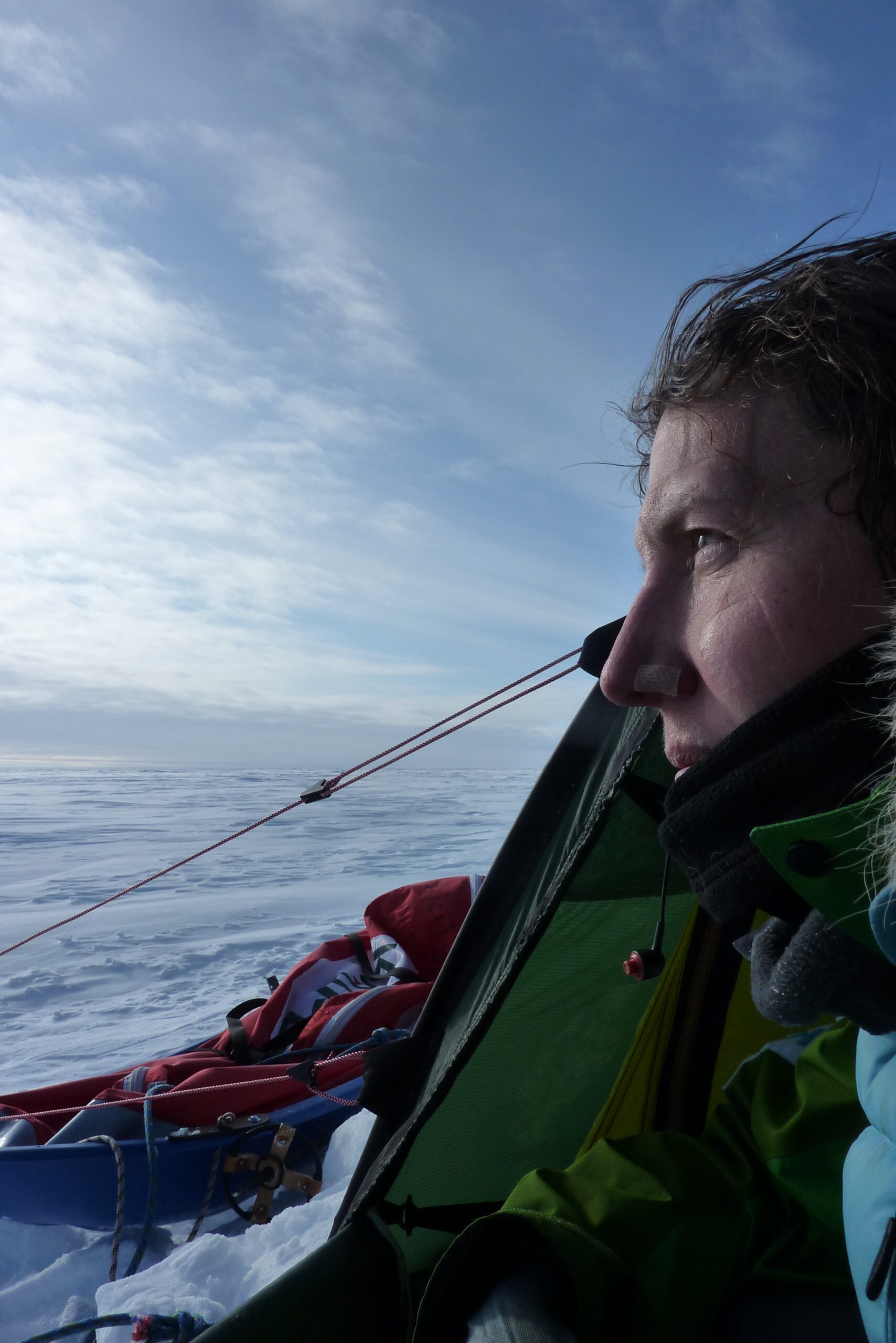
The First Solo Woman To Ski Across Antarctica Felicity Aston Talks About Becoming An Explorer
by Heather Cassell
There’s nothing in career guides on how to become a modern explorer.
Not even Felicity Aston knew that when she accepted a job in Antarctica simply because it was more exciting and interesting than any other options at the time that she was embarking on a career as an explorer.
Since then the 38-year old Brit has led expeditions across Antarctica, out into Iceland’s highlands and on a four month journey to the Polar Coves in Siberia in Russia.
It’s not a typical career or life for anyone, says Felicity, who moved to Iceland about three years ago. But she knew she wasn’t cut out for the office life. She’s figured out how to make it work for her in a world that somewhat embraces the unconventional path.
“I think maybe it’s more a condition of the way our world works these days or perhaps what we want out of life now,” says Felicity about taking a career path less traveled. “I don’t think that it’s necessary it’s confided to women. I think that men too don’t necessarily want to be doing the same thing for their whole life, [but] doing something different.”
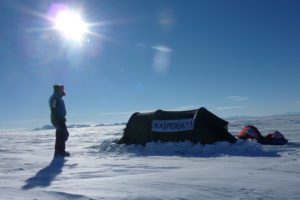
Expeditions, which can take months to complete, don’t happen every year. When Felicity isn’t traversing to the most desolate fringes of the earth she’s talking and writing about it. She speaks all over the world (like at last year’s Women’s Travel Fest) and has published two books detailing her journeys, Call of the White: Taking the World to the South Pole and Alone in Antarctica: The First Woman To Ski Solo Across The Southern Ice
.
Next on her list of places to go is Kamchatka at the end of Siberia just before Alaska in the United States.
“I would love to go to there,” says Felicity, who has long been attracted to the “fringes of the map” and “wintery islands.”
“When I look at the world map my eyes are always drawn to the little tiny specks around the edges that no one has ever heard of and just my curiosity is peaked,” she says.
Filled with curiosity she wonders: Who lives there? What does it look like there?
“There is something very exciting about islands and about remote places,” says Felicity, about the wintery islands that draw her. “I think that it’s because when you have this little ice and snow covered environment it’s so clean it’s so clear.”
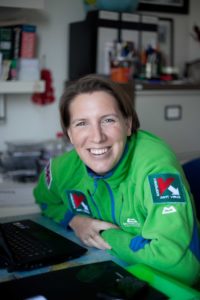
Becoming An Explorer
Adventure has been the driving force in her life since she accepted her first job out of university at the British Antarctica Survey at the Robert Evert Research in Antarctica.
Mulling over job opportunities and graduate schools trying to figure out what she was going to do after her studies were completed she wasn’t exactly thrilled about the prospects she grazed through. She had a degree in physics with a secondary degree in meteorology, two out of the three requirements in a job she was told about in Antarctica.
The pay wasn’t great. She would be separated from the comforts of home, family and friends or a connection to the modern world for more than three years, 39 months to be exact, once she landed at Robert Evert Research in Antarctica. However, the adventure was more than enough to make up for the drawbacks.
“I was just driven by the pure adventure of it,” says Felicity, who was 23 years old at the time and the other job prospects or continuing her studies simply weren’t quite as appealing. “How often do you get an opportunity like that? So, I absolutely grabbed it.”
Little did she know that she would return to Antarctica as an explorer leading the first team of women across the ice continent and again becoming the first woman to cross the continent solo.
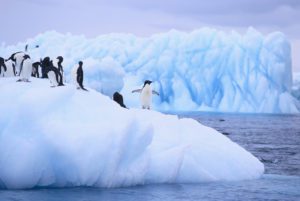
Home of the South Pole, Antarctica is the southernmost continent on earth. It is uninhabited other than by a few penguins, scientists at research labs, and ice. Every so often a few whales swim along the icy shores. That’s it.
“This place is so vast and so ancient you really come face to face with just how minute we as human beings are against the scale of nature on our planet, never mind the solar system and beyond,” says Felicity. “It just gives you a sense of our place in the scheme of things.”
“That’s what makes Antarctica particularly special. There’s no human history there. It’s just nature and I find that quite effective,” she adds.
Human versus nature is a taxing and pretty much overwhelming experience. Felicity writes in Alone in Antarctica about her solo journey across the ice continent. At the beginning of the book she writes about the moment when she’s watching the plane fly away leaving her to herself – completely to herself and Antarctica. She panicked, threw a tantrum, and then eventually picked herself up and started on her extraordinary journey.
“I’ve learned to trust myself a lot more,” Felicity says about what she’s learned the most about each journey, especially her solo trek across Antarctica. “I will find a way to cope no matter what gets thrown at me.”
“It may not be pretty. It may involve crying or having tantrums or shouting at the sky or making mistakes, but I will come to the end sum of it,” says Felicity. “There’s a sort of quite self assurance in knowing that and knowing that you can rely on yourself.”
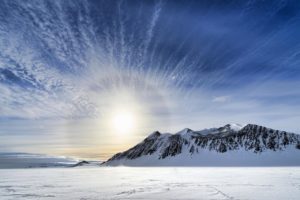
The Focus Of Travel
That’s the importance of travel. Not just learning about another culture, but in the end learning more about yourself and your own country and culture.
“Traveling somewhere else brings where you are from better into focus,” says Felicity. “When you travel elsewhere you don’t just learn about other cultures you learn more about your own culture and more specifically you learn about your culture affects, your behavior, your thoughts and your perspective.”
“When you [are] put somewhere where everything is different it really makes you realize the true impact of what humanity is,” she adds.
Book your next adventure with Girls That Roam Travel. Contact Heather Cassell at Girls That Roam Travel at Travel Advisors of Los Gatos at 408-354-6531 or 415-517-7239 or at trips@girlsthatroam.com.
To contract an original article, purchase reprints or become a media partner, contact editor@girlsthatroam.com.







